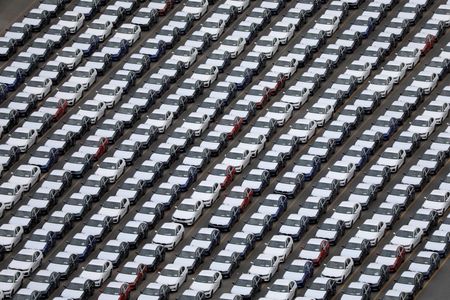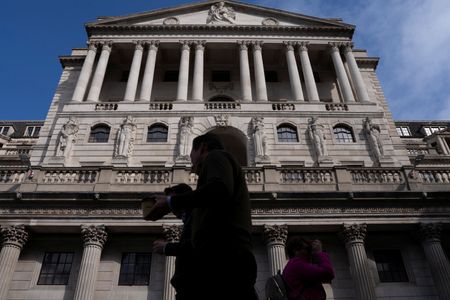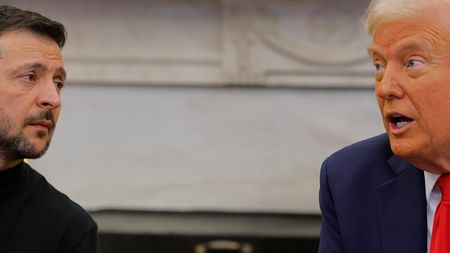By Edward McAllister and Fatos Bytyci
ELBASAN, Albania (Reuters) – Ilir Rranci moved to a hamlet outside the Albanian city of Elbasan for the view of snow-capped peaks and a garden big enough for fruit trees, chickens and turkeys. Today, however, the surrounding scenery is obstructed by a multicoloured mountain of rubbish from a next-door landfill.
The trash was supposed to be fed into a new incinerator to produce electricity, but the project has been plagued by operating problems and the pile now hulks above the surrounding fields.
It is one of three such sites worth hundreds of millions of euros at the heart of a corruption scandal in which prosecutors allege incinerator contracts were awarded illegally, ministers accepted payments, and contractors faked invoices for work that was never done.
The sight from Rranci’s house highlights the lingering impacts of endemic graft in the Balkan country of 2.4 million people, where Prime Minister Edi Rama is seeking re-election for an unprecedented fourth term in a May 11 election on the promise that Albania will clean up its act and join the European Union by 2030.
It is unclear how this and other corruption scandals will impact Rama in the election, which will include around 250,000 registered voters from the diaspora for the first time.
Polls show him with a commanding lead over an opposition that has weathered corruption allegations itself. But analysts say it could cost his Socialist Party seats in parliament and dent chances of joining the EU within five years.
Indeed, many experts are sceptical about Rama’s EU timeframe, given how long it has taken other countries in the region to meet conditions for membership.
“The incinerator case showcased what is wrong with the Albanian system. All safeguards failed, due diligence failed,” said Andi Hoxhaj, a Balkan expert at King’s College London.
Following investigations by Albania’s anti-graft prosecutors, known as SPAK, former environment minister Lefter Koka was jailed on corruption charges relating to the incinerator deals. Former deputy prime minister Arben Ahmetaj was also charged but has left Albania.
Koka’s lawyer declined to comment. Ahmetaj told Reuters by phone that he was a “scapegoat” and that “there is no connection between me and the incinerator scandal.”
Locals outside Elbasan say the plant has not operated for months. Eco-Elb, the company which runs the project, did not respond to requests for comment.
At the landfill, birds squawk above the rotting leftovers. When a southerly wind blows, residents close windows against the stench. Asked if they would vote for Rama, they laugh. “I will never vote for him now,” said Rranci.
“This is how things are in Albania,” said another resident, Besim Stafa. “They spend a lot of money for nothing.”
EUROPE’S DOOR ‘OPEN’
Rama supporters say he helped Albania shed its difficult communist-era past, in which former ruler Enver Hoxha locked the country away from the world for decades.
In the capital Tirana, drab Soviet-era housing abuts smart new apartment buildings and bustling restaurants and cafes. A new runway at Tirana airport may soon provide direct flights to New York.
Annual economic growth above 4% for 2022-2024, driven by trade with the EU, a tourism boom and strong hydropower production, outstripped other Balkan countries, the World Bank says.
High-profile investors include U.S. President Donald Trump’s son-in-law Jared Kushner, whose company plans a luxury resort on an uninhabited island off the Adriatic coast, worrying some locals.
Albania was taken off the global Financial Action Task Force’s grey list in 2023 for its work tackling money laundering. That is partly due to SPAK, which has confiscated 200 million euros in corruption and organised crime cases since it was founded in 2019.
Rama has won favour from the West by accepting migrants from Italy and housing Afghans awaiting visa processing to the United States.
At rallies this week, Rama hoisted EU flags. “We are at the front door of Europe and that door now is open for us,” he told supporters in the eastern city of Pogradec.
CORRUPTION, UNREST
Critics say Rama wields too much power, has failed to uproot corruption and has attempted to silence opposition with trumped-up corruption charges, all accusations Rama denies.
Poor living standards and high unemployment prompted wholesale emigration: the population shrank by 420,000 from 2011 to 2023, census data show.
Unrest broke out repeatedly last year over charges against opposition leader Sali Berisha of the Democratic Party, who was put under house arrest.
Berisha, who has hired a U.S. lobbying firm in part to improve his image in Washington where he is officially considered “persona non grata”, says the charges are politically motivated.
Experts say Albania remains a hub for gangs seeking to launder billions of euros from trafficking drugs and weapons across the world.
That accounts for the prevalence of Range Rovers and shiny but often empty new apartment blocks in Tirana, they say.
Census data shows about one-third of residences in Albania are unoccupied, far higher than most EU countries.
“Albania, it is a good student on paper, but it lacks in implementation,” said Jorida Tabaku, a Democratic Party MP. “We want standards to be improved for people, standards in everyday life.”
(Reporting by Edward McAllister and Fatos Bytyci; Editing by Aidan Lewis)














